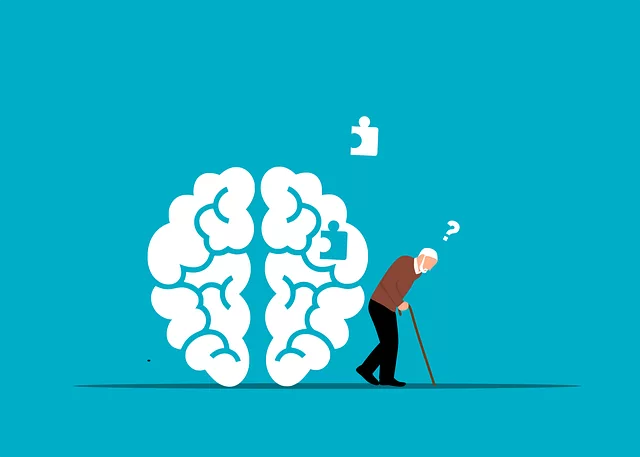The Kaiser Permanente mental health center in Parker promotes mental wellness through positive thinking exercises, like journaling and mindfulness, which challenge negative thoughts and build optimism. Their programs empower individuals with coping strategies for stress reduction and burnout prevention, fostering resilience and community well-being. These techniques, including affirmations and guided meditations, have proven to enhance personal growth and social cohesion, leading to better patient outcomes and more resilient communities.
“Discover the transformative power of positive thinking through this comprehensive guide. We explore the concept, its benefits, and practical implementation strategies, especially within communities. This article delves into how organizations like the Kaiser Permanente Mental Health Center in Parker play a pivotal role in promoting well-being through positive thinking exercises. Learn about effective techniques, real-world applications, and the profound impact they have on individuals and communities alike.”
- Understanding Positive Thinking Exercises
- The Role of Kaiser Permanente Mental Health Center in Parker
- Implementing Effective Positive Thinking Techniques
- Benefits and Real-World Applications at the Community Level
Understanding Positive Thinking Exercises

Positive thinking exercises are a powerful tool for cultivating mental wellness, as advocated by leading organizations like Kaiser Permanente’s mental health center in Parker. These practices, often incorporated into self-care routines, involve intentional shifts in perspective and thought patterns to promote a more optimistic outlook on life. At its core, positive thinking encourages individuals to challenge negative thoughts and replace them with constructive alternatives.
One popular method is Mental Wellness Journaling Exercise Guidance, where individuals are encouraged to keep a daily journal, reflecting on their experiences and focusing on the positive aspects of even challenging situations. This practice allows for self-awareness and helps identify recurring negative thought patterns. Additionally, Stress Reduction Methods can be integrated into these exercises, teaching individuals coping strategies to manage anxiety and promote mental clarity. By regularly engaging in such activities, people can enhance their overall well-being and develop a more resilient mindset.
The Role of Kaiser Permanente Mental Health Center in Parker

The Kaiser Permanente Mental Health Center in Parker plays a pivotal role in promoting mental well-being and fostering positive thinking within the community. As a leading healthcare provider, the center offers comprehensive services tailored to meet the unique needs of individuals seeking to enhance their coping skills and prevent burnout, particularly among healthcare providers who face constant challenges in their high-pressure professions.
Through various programs and initiatives, the Kaiser Permanente Mental Health Center Parker focuses on educating and empowering residents with effective coping skills development. They actively contribute to the community’s public awareness campaigns related to mental health, breaking down barriers and stigma associated with seeking help. By integrating positive thinking exercises into their treatment plans, the center encourages individuals to embrace resilience, leading to improved overall well-being and a more optimistic outlook on life.
Implementing Effective Positive Thinking Techniques

Implementing effective positive thinking techniques involves a combination of practices that can be readily incorporated into daily routines. At the Kaiser Permanente mental health center Parker, professionals emphasize the power of affirmations and gratitude journaling as powerful tools for cultivating optimism. Dedicating just a few minutes each day to writing down positive statements about oneself or expressing gratitude for life’s blessings can significantly shift one’s mindset over time.
Additionally, mindfulness exercises play a crucial role in fostering emotional healing processes. These practices, which encourage present-moment awareness without judgment, help individuals detach from negative thought patterns and reduce stress responses. Incorporating mindfulness into daily activities—such as mindful breathing or guided meditations—can enhance overall well-being, making it easier to navigate life’s challenges with a more positive lens. This approach aligns with the principles of cultural sensitivity in mental healthcare practice, ensuring that interventions are tailored to meet each individual’s unique needs and backgrounds.
Benefits and Real-World Applications at the Community Level

The benefits of positive thinking exercises extend far beyond personal growth and self-improvement. At a community level, these practices can have tangible effects on overall well-being and social cohesion. One notable example is the implementation at the Kaiser Permanente mental health center in Parker, where therapists and counselors incorporate positive psychology into their treatments. This approach has shown promising results in enhancing patient outcomes, particularly in fostering confidence boosting and inner strength development. By encouraging clients to focus on optimism, resilience, and gratitude, the center aims to equip individuals with powerful tools to navigate life’s challenges.
On a broader scale, these strategies can be applied in community initiatives, schools, and support groups to promote mental health awareness and resilience. For instance, group sessions led by trained facilitators can help neighborhood members build coping mechanisms and strengthen their social support networks. This collective approach to risk management planning for mental health professionals has the potential to create a safer, more resilient community environment, where individuals feel empowered to tackle stress, anxiety, and other mental health concerns head-on.
Positive thinking exercises, as demonstrated by the initiatives at the Kaiser Permanente Mental Health Center in Parker, offer a powerful tool for enhancing well-being at both individual and community levels. By incorporating these techniques into daily routines, folks can foster resilience, improve mental health outcomes, and create a more optimistic and supportive environment. The success of such programs highlights the potential for widespread adoption, revolutionizing how communities approach mental wellness and fostering a symphony of positivity.






